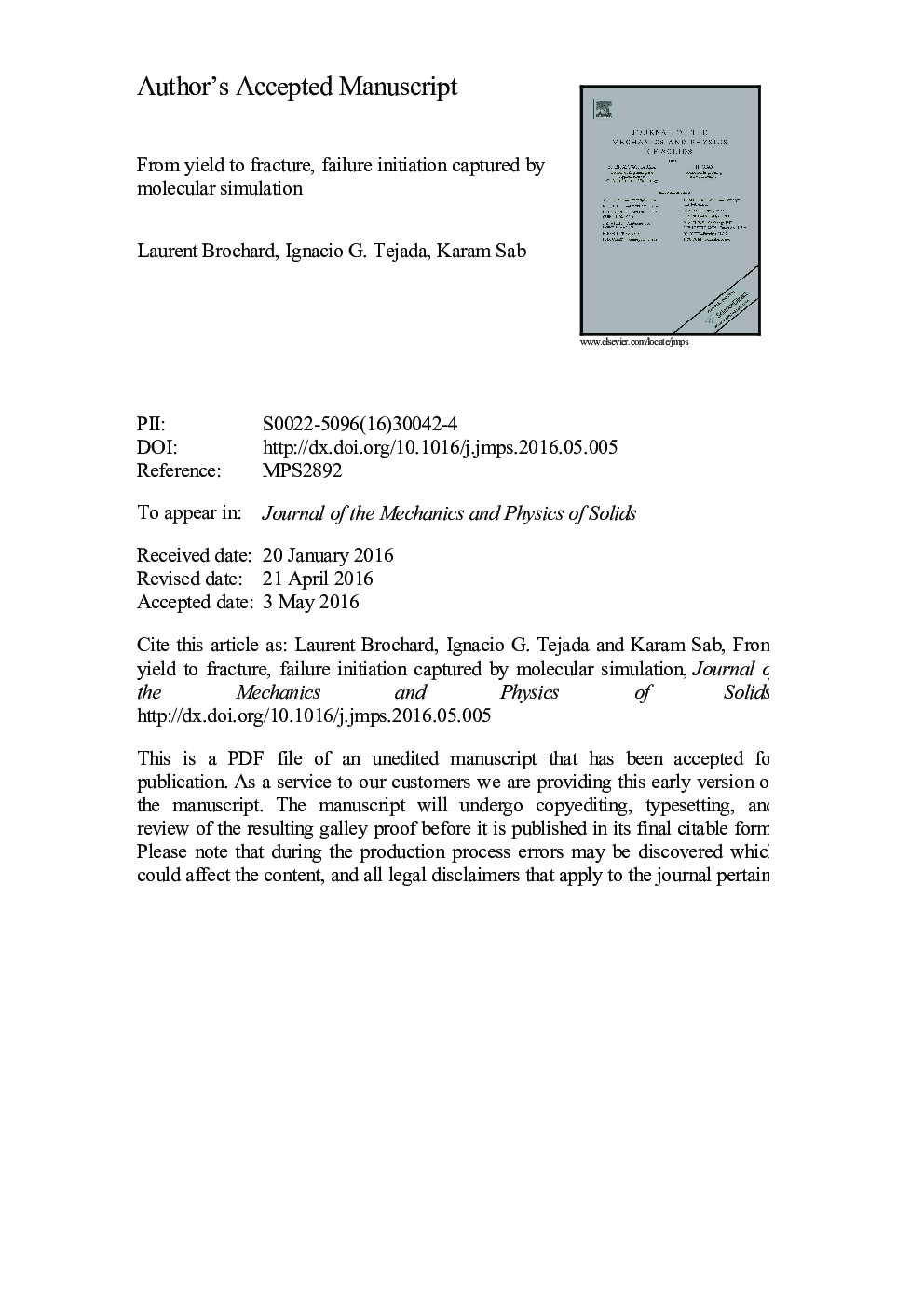| Article ID | Journal | Published Year | Pages | File Type |
|---|---|---|---|---|
| 7177637 | Journal of the Mechanics and Physics of Solids | 2016 | 34 Pages |
Abstract
While failure of cracked bodies with strong stress concentrations is described by an energy criterion (fracture mechanics), failure of flawless bodies with uniform stresses is captured by a criterion on stress (yielding). In-between those two cases, the problem of failure initiation from flaws that moderately concentrate stresses is debated. In this paper, we propose an investigation of the process of failure initiation at the atomic scale by means of molecular simulations. We first discuss the appropriate scaling conditions to capture initiation, since system sizes that can be simulated by molecular mechanics are strongly limited. Then, we perform a series of molecular simulations of failure of a 2D model material, which exhibits strength and toughness properties that are suitable to capture initiation with systems of reasonable sizes. Transition from fracture failure to yield failure is well characterized. Interestingly, in some specific cases, failure exceeds yield failure which is in contradiction with most initiation theories. This occurs when stress are highly concentrated while little mechanical energy is stored in the material. This observation calls for a theory of initiation which requires that both stress and energy are necessary conditions of failure. Such an approach was proposed by Leguillon (2002). We show that the predictions of this theory are consistent with the molecular simulation results.
Related Topics
Physical Sciences and Engineering
Engineering
Mechanical Engineering
Authors
Laurent Brochard, Ignacio G. Tejada, Karam Sab,
